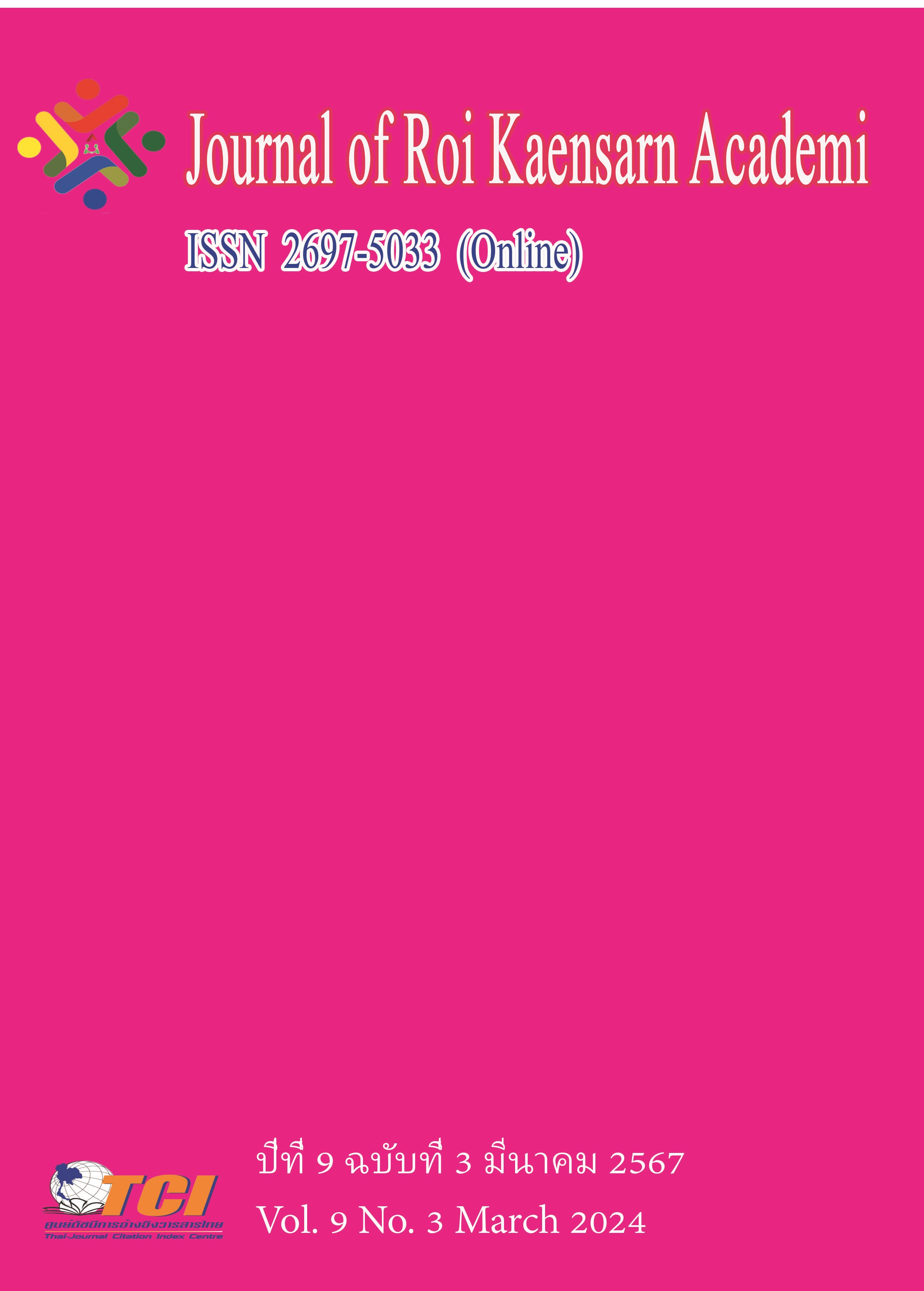The Knowledge Issues Enhanced the Teaching of Music Technology
Main Article Content
บทคัดย่อ
Teachers are underusing music technology in the classroom due to its many issues: Technology, pedagogy, and content knowledge are combined in the TPACK to improve teaching and learning. The purpose of this article is to study knowledge issues for enhancing the teaching of music technology. Music technology includes creation, wave data manipulation, and reproduction. Subject matter, teaching methods, and technology skills are essential for educational success. TPACK helps teachers learn and practice technology integration. It can impact teacher training and professional growth. Music production involves various tools, software, and hybrid teaching, promoting student-centered, patient-oriented learning. Creating music technology classes for instructors with limited expertise is crucial for online and offline learning. Data extraction, music recommendation, analysis, and music therapy are made easier with music software. Music technology offers new ways to enjoy and make music. Due to rapid change, the curriculum cannot keep up with instruction. Teacher methods include integrating disciplines and teaching methods, ICT, service learning, experiential learning, and cooperative learning. Successful music technology teaching requires proper technology use, computer skills, and a dedication to learning.
Article Details
เอกสารอ้างอิง
Andrew R. B. (2015). Music Technology and Education Amplifying Musicality. (2nd ed.). New York: Taylor & Francis.
Annur,R. & Ponnusamy, V. (2020). Information and Communication Technology (ICT) for Intelligent Transportation Systems (ITS). doi: 10.4018/978-1-7998-1851-9.CH009
Bauer, W. (2014). Music learning and technology. New directions: a journal of scholarship, creativity and leadership in music education, 1 (1). 15-26.
Boehm, C. (2001). Between Technology and Creativity, Challenges and Opportunities for Music Technology in Higher Education. Centre for Music Technology.
Boehm, C. (2005). Music technology in higher education. Probing the Boundaries of Higher Education, 12 (1), 85-90.
Burnard, P. (2011). Educational leadership, musical creativities and digital technology in education. Journal of Music, Technology, and Education, 4 (2 & 3), 157-171.
Creech, A. (2019). Using music technology creatively to enrich later-life: A literature review. Frontiers in psychology, 10, 117.
Hesmondhalgh, D., & Meier, L. M. (2018). What the digitalisation of music tells us about capitalism, culture and the power of the information technology sector. Information, Communication & Society, 21 (11), 1555-1570.
Kara, S. (2021). An investigation of Technological Pedagogical and Content Knowledge (TPACK) competencies of pre-service visual arts teachers. International Journal of Technology in Education (IJTE), 4 (3), 527-541. https://doi.org/10.46328/ijte.184
Koehler, M. J., & Mishra, P. (2008). Introducing Technological Pedagogical Content Knowledge. In AACTE Committee on Innovation and Technology (Eds.), Handbook of Technological Pedagogical Content Knowledge (TPCK) for Educators. (3-29). New York: Routledge.
Macrides, E., & Angeli, C. (2018). Investigating TPCK through music focusing on affect. The International Journal of Information and Learning Technology, 35(3), 181-198.
Mutavati, A., & Muranda, R. (2023). A survey on the uptake of software and hardware resources for music production in Zimbabwean contemporary music. African Musicology Online, 12(2), 56-64.
OECD. (2016), Innovating Education and Educating for Innovation: The Power of Digital Technologies and Skills, OECD Publishing, Paris. http://dx.doi.org/10. 1787/9789264265097-en.
Peterson Miller, S., Harris, C., & Watanabe, A. (1991). Professional coaching: A method for increasing effective and decreasing ineffective teacher behaviors. Teacher Education and Special Education, 14 (3), 183-191. https://doi.org/10.1177/088840649101400
Schmidt, D. A., Baran, E., Thompson, A. D., Mishra, P., Koehler, M. J., & Shin, T. S. (2009). Technological pedagogical content knowledge (TPACK): The development and validation of an assessment instrument for preservice teachers. Journal of research on Technology in Education, 42 (2), 123-149.
Shetty, S., & Hegde, S. (2019). Applications of Unsupervised Techniques for Clustering of Audio Data. In: Li, X., Wong, KC. (eds) Natural Computing for Unsupervised Learning. Unsupervised and Semi-Supervised Learning. Springer, Cham. https://doi. org/10.1007/978-3-319-98566-4_4
Silvey, B. A., Sims, W. L., Pohlman, G., & Regier, B. J. (2019). A Content Analysis of Update: Applications of Research in Music Education (1989–2017). Update: Applications of Research in Music Education, 38 (1), 55-62. https://doi.org/10.1177/875512331982 9193
Souto Iglesias, A., Morillo Balsera, M., Guadalupe Garcia, R. E., Toman, M., & González Gutierrez, L. M. (2011). Proceedings of INTED2011 Conference. Integrated learning of computer applications for production engineering. 7-9 March 2011, Valencia, Spain.
Tobias, E. S. (2016). Learning with digital media and technology in hybrid music classrooms. In C. R. Abril & B. M. Gault (Eds.), Teaching general music: Approaches, issues, and viewpoints (112-140). New York, NY: Oxford University Press.
Ulla, M. B., & Perales, W. F. (2022). Hybrid teaching: Conceptualization through practice for the post COVID19 pandemic education. In Frontiers in Education, (7), 1-7. 924594.
Warnars, H., & Rusli, W. (2021). A Literature Review of Music in Computer Science. International Journal of Computing and Digital System, 12 (1), 1503-1516.
Yusupova, M. J., & Rakhmonova, D. N. (2022). Modern Technologies and Methods of Music Education. International Journal of Social Science And Human Research, 5 (6), 2579-2583. DOI: 10.47191/ijsshr/v5-i6-88
Zou, L. (2020, April). Application of data mining technology in music curriculum resources. In Journal of Physics: Conference Series (Vol. 1533, No. 4, p. 042031). IOP Publishing.

